An expert explains why they happen and how to get past them

If you’ve ever tried losing weight, you know the frustration of the weight-loss plateau. Everything’s going smoothly as you’re exercising, eating a healthy diet and feeling more energized. But then you notice your scale, which has been creeping down for weeks, suddenly won’t budge.
Advertisement
Cleveland Clinic is a non-profit academic medical center. Advertising on our site helps support our mission. We do not endorse non-Cleveland Clinic products or services. Policy
First of all, this is perfectly normal says endocrinologist Shirisha Avadhanula, MD. And, she adds, it happens to pretty much everyone. But what can you do to get past this plateau to continue trimming pounds in a safe, healthy way?
To get to the bottom of it all, we spoke to Dr. Avadhanula about why the plateau happens and what you can do to get past it.
A weight-loss plateau is when you stop losing weight despite a consistent diet and exercise regimen that had previously helped you lose weight. Many of us wonder what we’re doing wrong, putting the blame on ourselves when the pounds stop falling. But that shouldn’t be the case at all, says Dr. Avadhanula.
“Weight loss is hard,” she says, “and every pound lost should be celebrated.” And while weight-loss plateaus happen because of something our bodies do, it’s through no fault of our own.
There are two main reasons why your body weight plateaus — one related to your hunger and one related to exercise.
Weight-loss plateau happens because while your mind might be focused on losing weight, your body is focused on maintaining what Dr. Avadhanula says is your “metabolic set point.”
“Your body is rather resistant to weight loss,” she says, “because there’s a set point at which your body thinks is its ideal weight and it’s determined by a number of factors.”
Advertisement
Those factors include:
When you begin losing weight, even with a healthy diet, your body still perceives that as starvation. “Your body thinks it’s starving and it begins a process of trying to counteract that, to get you to regain the weight you’ve lost,” she says. Your body produces regulatory hormones that increase hunger and make you feel less full in the hopes you’ll keep eating to reach that set point.
Your body is also working against you when it comes to the exercise portion of your new weight loss routine. “As you exercise, your body becomes more efficient at conserving energy,” Dr. Avadhanula notes.
In other words, if you burn (for example) 300 calories during a workout on the treadmill at the beginning of your new exercise routine, your body will eventually adapt, becoming efficient enough that the number of calories you burn during that same work drops. “Instead of burning 300 calories in half an hour, for example, you might only burn 200,” Dr. Avadhanula explains.
And don’t look to friends or family for a sign of when you might hit that plateau point. As Dr. Avadhanula points out, our bodies are all different, so they’ll react to diet and exercise in different ways. “People plateau at different points. It really just depends on your body,” she says.
The best way to overcome the weight-loss plateau, according to Dr. Avadhanula, is pretty simple: more exercise.
There’s no particular increment of increase you need to hit to get over that plateau, she says. But one way to know if you’re on the right path is keeping track of how comfortable you are during your workout.
“Exercising should be hard,” she says. Your body should feel some discomfort, within reason, during exercise. For instance, during a run, you’re probably sweating, breathing heavily and feeling the effects of the physical exertion.
If you get to a point with your exercise routine where you’re not breaking a sweat or feeling that exertion, though, that means your body is used to the exercise and you’re not burning calories at the same rate. Keeping tabs on your heart rate can be a useful tool in tracking how hard you’re working out.
As long as you’re maintaining a healthy diet, there’s no reason to change it just because you hit that weight-loss plateau. “The most important thing with dietary habits is being consistent,” Dr. Avadhanula advises.
“One of the big misconceptions about weight loss is that there should be some sort of deprivation element to it,” she adds. “You need food to function. You’re looking to burn more calories in exercise than you take in via your diet but maintaining healthy habits with your diet is profoundly important.”
Advertisement
Again, Dr. Avadhanula points out that hitting a weight-loss plateau is perfectly normal, and an important part of healthy weight loss is managing expectations and preparing for a longer journey than you might think.
“It’s not particularly healthy to lose a tremendous amount of weight in a short time,” she says. “Losing between one and two pounds a week is plenty. It’s also about maintaining a healthy diet and building healthy habits.”
It can take between three and five years for your body to stabilize, to adapt to the weight loss and accept a new weight as a new set point, she adds. “You have to think about it as a journey more than a short-term experience.”
This also plays into the mental health aspect of losing weight. “Mental well-being goes hand-in-hand with this weight loss journey,” says Dr. Avadhanula. “You have to learn to love yourself at your current weight, too.”
Advertisement
Learn more about our editorial process.
Advertisement
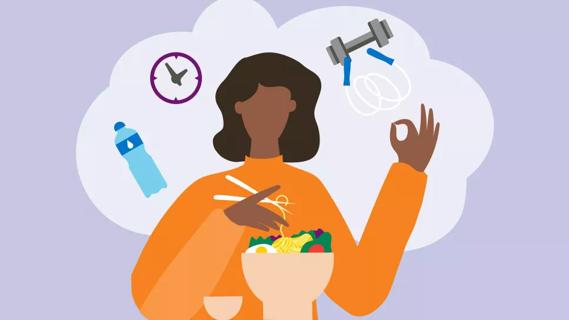
Actively choose healthy habits not only when it comes to food and nutrition, but also physical activity and your mental health
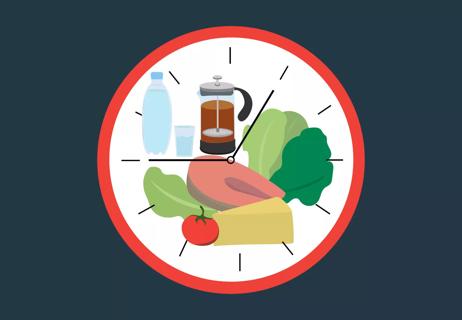
Trying fad diets and skipping meals won’t do you any favors
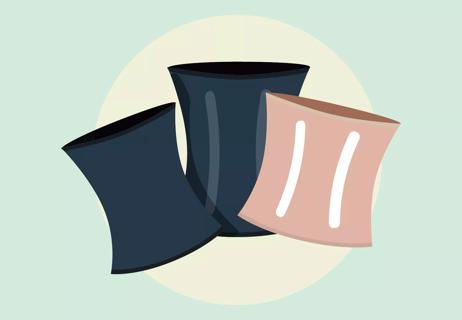
Wearing this undergarment for too long will do more harm than good

Quick weight loss is possible, but it’s not sustainable

You can lose 15% of your body weight, plus lower your heart disease and diabetes risks
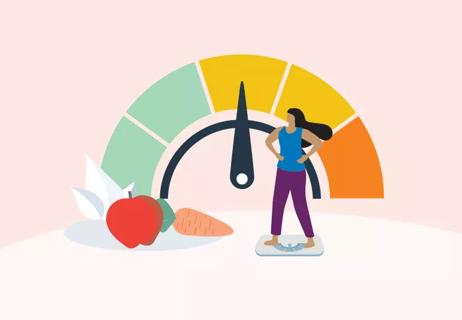
A safe and effective surgery that shouldn’t be considered only as a last resort

Focus on physical activity and foods that pack a nutritional punch to help you lose weight
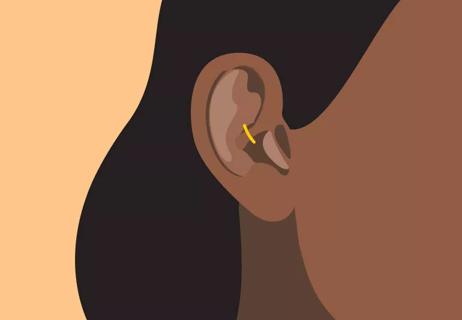
Skip this unproven, unsafe and unregulated weight-loss practice

Type 2 diabetes isn’t inevitable with these dietary changes

Applying a hot or cold compress can help with pain